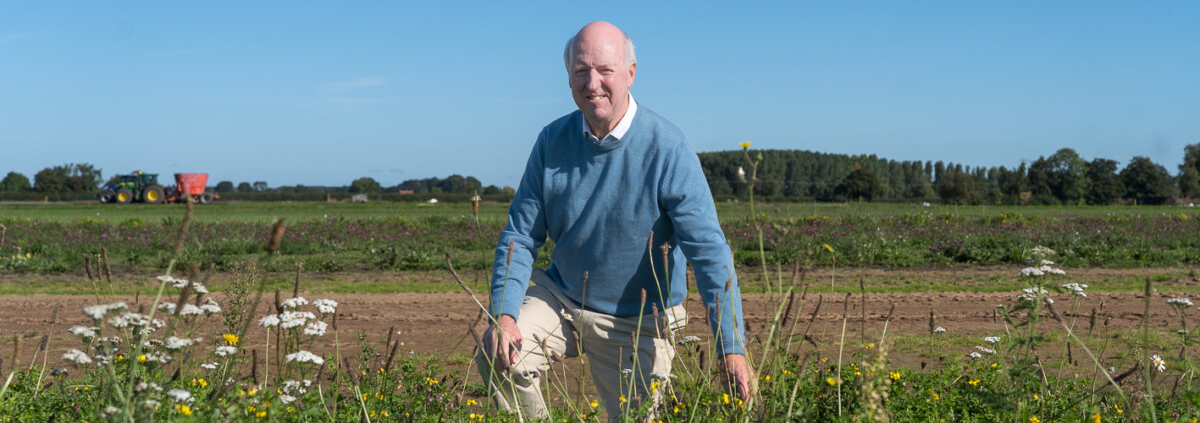No Mow May? Or mix up the monocrop lawn?
No Mow May? Or mix up the monocrop lawn?: The popularity of the environmental movement ‘No Mow May’ is growing like a damp lawn in the summer sun.
According to organisers Plantlife, the annual movement is aimed at providing a feast for pollinators, tackling pollution, reducing urban heat extremes, and sequestering atmospheric carbon in the soil.

No Mow May? Or mix up the monocrop lawn?
As well as those vital pollinators, the campaign attracts its fair share of supporters, celebrity and otherwise.
Chris Packham recently took to social media to encourage his followers to buy his No Mow May t-shirts, and councils the length and breadth of Britain are clamouring to highlight their involvement with the initiative to bolster their environmental credentials with an easy win.
But does the annual campaign actually do any good for the environment and encourage an increase in pollinator numbers? Or is it just another example of greenwashing, something that makes people think they are doing good but in reality, has little real impact?
What’s in a lawn?
As someone who has specialised in growing turf for almost 40 years, grass is something of an obsession for me.
What I have learned in that time is that just letting a lawn grow out for a few weeks in spring rarely, if ever, leads to the ‘wildflower’ effect Plantlife seems to suggest in the images on its website.
So, what actually happens if you don’t cut your grass during May? The answer to this depends largely on what’s in your lawn to begin with.
If it’s been there a very long time and has not been treated to remove ‘weeds’, there is a chance that other species will emerge as a result of reduced mowing, leading to an increase in biodiversity in your lawn.
This, in turn, may well increase the number of insects that visit your garden during May, including those all-important pollinators.
However, even if this is the case, do not expect the emergence of a bright, multi-coloured, wildflower meadow effect, as so much of the marketing material appears to imply.
A few dandelions and daisies might come through, adding a welcome splash of colour, as well as some clovers, but anything beyond this is unlikely to materialise simply by leaving your grass alone.
This scenario also doesn’t represent the majority of lawns in the UK. Most are established by laying a modern cultivated turf that contains a dense mixture of dwarf perennial ryegrasses and fescues. Left to grow out, they simply get longer and stragglier while trying to put up seed heads.
Not a pretty sight and no biodiversity increase at all. After all, these turf mixtures are designed to be mown regularly and look neat and pristine with perfect stripes, not to increase insect numbers.
Raising awareness?
Of course, many might argue that despite creating few tangible benefits for wildlife, No Mow May drives awareness of biodiversity loss and that has to be a good thing.
Well, perhaps, but by positioning it as the solution, it may well do the opposite of what it is trying to achieve.
After all, those taking part will get to the end of May thinking they have done their bit for wildlife when in fact nothing significant has been achieved. Worse still, they then cut the lawn, immediately undoing any benefits that were achieved.
Improve biodiversity by improving biodiversity
So, if it’s time to say no to No Mow May, what can people do to improve biodiversity in their gardens and provide a home for wildlife?
The answer is in the question. If you want to increase the variety of creatures attracted to your garden, start by increasing the variety of plants in your garden.
Use the margins of your lawn to produce a full wildflower effect, which can be achieved via a wildflower turf or by sowing wildflower seeds. Or, for those who want to go a step further, replacing your lawn with a species-rich turf that includes a blend of hardy grasses and wildflowers to create a truly biodiverse area.
Not only will this be great for pollinators, but it will still stand up to the daily rigours of being walked on and having children ride bikes and play on it.
Time to mix up the monocrop lawn?
So, while no more No Mow May might be a good first step, perhaps a better one would be to mix up the monocrop lawn and replace parts of it with a richer variety of species. You can still have your strips, but giving over part of your garden to an area rich in plants will attract pollinators throughout the whole of the summer.
If everyone with a garden were to do this, perhaps we might truly start to reverse the worsening biodiversity crisis and turn our outdoor spaces into the wildlife havens they have every potential to be.
But that will never be achieved within the tight confines of a single month.
For the latest industry news visit turfmatters.co.uk/news
Get all of the big headlines, pictures, opinions and videos on stories that matter to you.
Follow us on Twitter and Instagram for fun, fresh and engaging content.
You can also find us on Facebook for more of your must-see news, features, videos and pictures from Turf Matters.

















